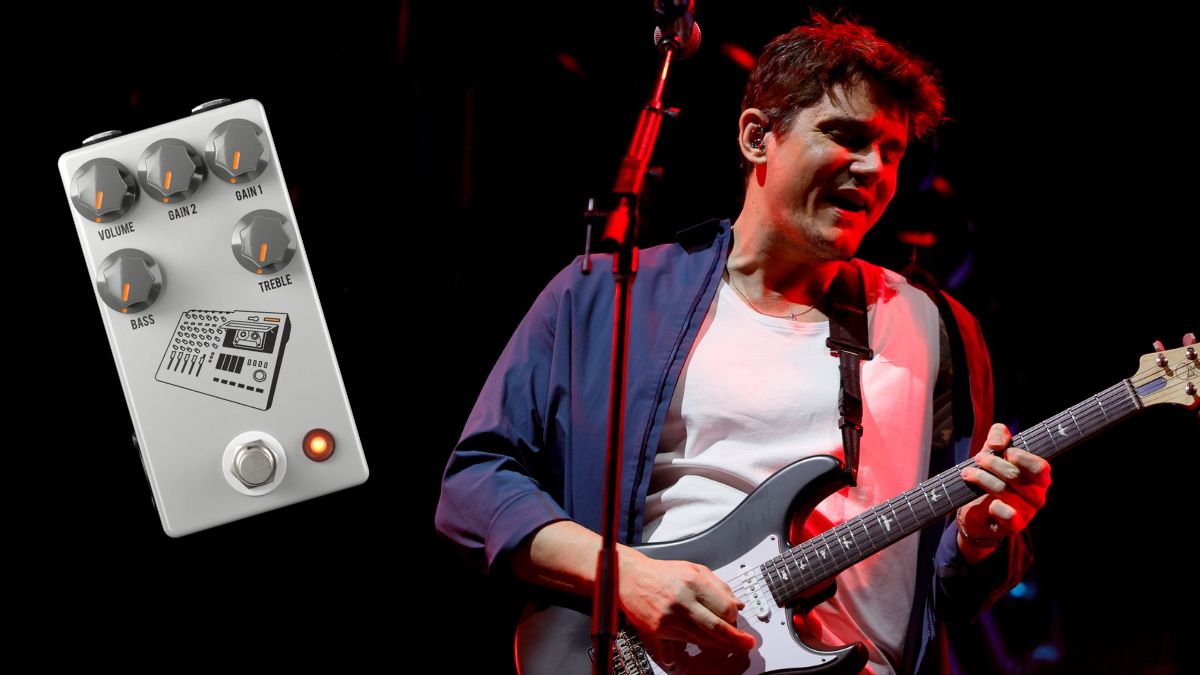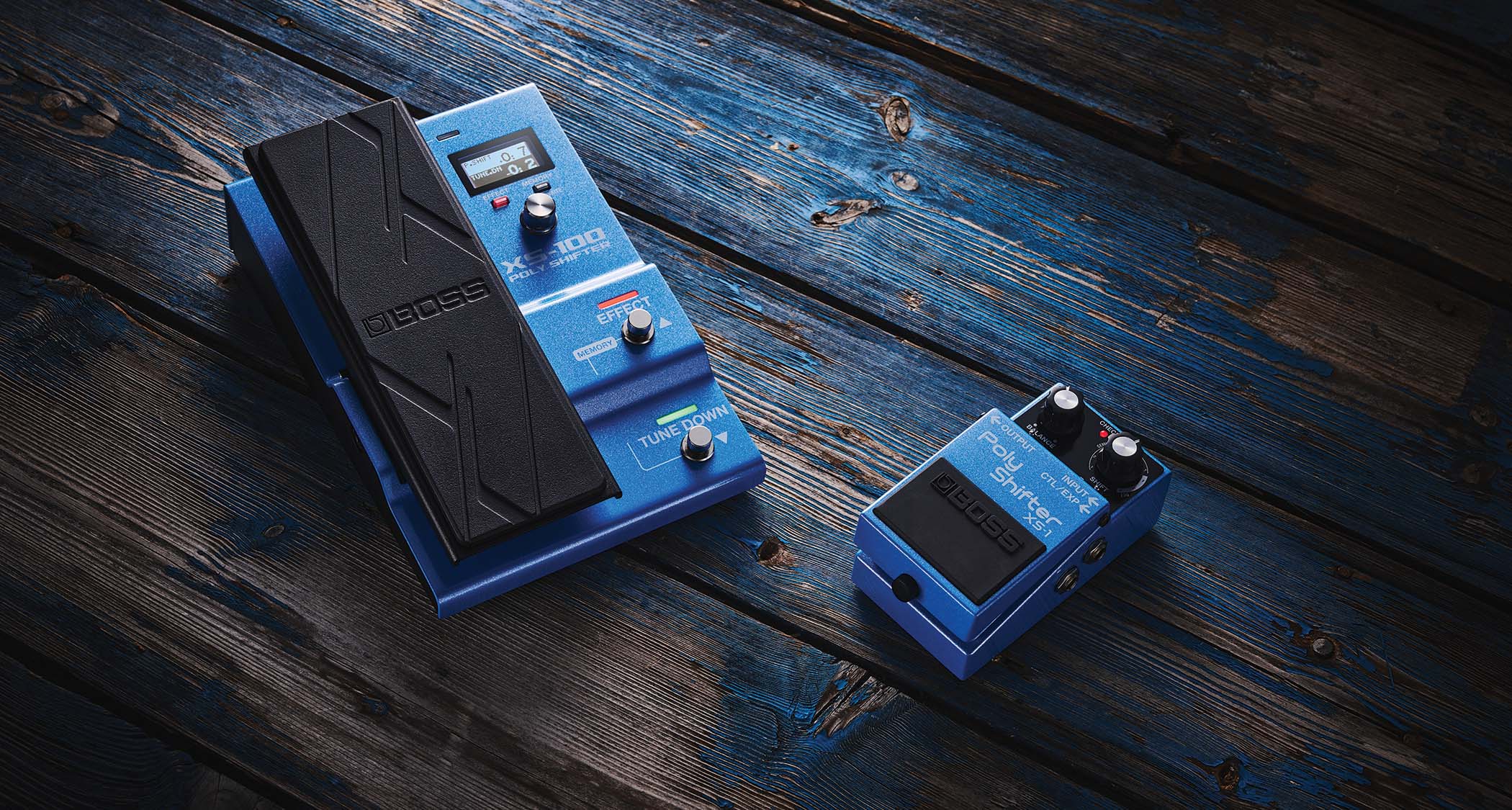“There is a revolution taking place right now in guitar playing”: John Mayer posts surprise demo of JHS Pedals’ new Mk.gee-coded stompbox – and explains why it reflects a wider change in guitar music
Mayer – who has demoed the pedal while Josh Scott recovers from a serious bike accident – says the 424 Gain Stage has forced him to explore new ways of playing

John Mayer has stepped up as JHS Pedals’ de facto gear tester while founder Josh Scott continues to recover from a major cycling accident.
Scott's accident last month left him with a long list of injuries, including a broken vertebra, which means he'll be out of playing action for the foreseeable future. So, John Mayer has stepped in with a video of him putting the new JHS 424 Gain Stage through its paces.
As Mayer explains, the pedal is “a perfect replica of the front end of a Tascam Portastudio,” an affordable multi-track recorder that became many bedroom guitarists’ best friend in the late ’70s and early ’80s. More recently, it has been the subject of an intense popular revival thanks to lo-fi guitar hero Mk.gee.
“I am not Josh Scott, but I am John Mayer, and I thought I would take this time while Josh is out of commission for the time being to do a little of his job,” the guitarist begins, while some smooth, clean playing from what looks to be a new-look version of his PRS 'Dead Spec' Silver Sky unfurls in the background.
Vitally for Mayer, a hardened tube amp fanatic, the pedal is reflective of a wider change currently taking place in the music world. What's more, it is changing his relationship with the electric guitar.
“There is a revolution taking place right now in guitar playing, and it has to do with dynamics,” he explains. “For most of guitar playing history, guitars were plugged into amplifiers, and the way that a tube amp responds has kind of defined the way people played guitar.
“But now people have been plugging into things that aren't tube amplifiers, like USB interfaces for DAWs, and they react completely different [to an amp],” Mayer continues. “How it reacts, sonically, is 50% of the thing; feel is the other 50%, and the fun part about that is it makes you play different stuff.
All the latest guitar news, interviews, lessons, reviews, deals and more, direct to your inbox!
“When you're playing through an amp, the notes are kind of contained. They're almost going down a half pipe. This just spills everywhere. It's like mercury that rolls across the top of the table. That's really interesting.”
Able to channel vibes as diverse as Mk.gee and Spoon, two acts who have used the Portastudio's charm on studio recordings, it promises a “gooey, saturated colour straight into your interface or mixer” with the aid of a balanced XLR output. Place it in front of an amp, meanwhile, and it serves as a gain stage with overdrive and gnarly fluzz flavors aplenty.
A post shared by JHS Pedals (@jhspedals)
A photo posted by on
There are five knobs to tweak – a Volume, two Gains, and Bass and Treble– to replicate the Portastudio workflow. There's also a Ground Lift switch for hum elimination, a buffered bypass, and soft-touch switching in a standard pedal-sized housing, making pedalboard integration a doddle. And Mayer reckons it will come alive differently for each player.
“A lot of times, when people have the same pedal, they have the same sound,” he says. “That will not happen with this pedal, because this is a whole new dynamic approach. What you do with this pedal is up to you; it is not so much a paint color, but a whole different brush.
“Yes, there's a lot of pedals you could buy that will change the sound, but how many pedals can you buy that will actually change your relationship with the instrument itself. I cannot do most of my tricks [with this]. That forces me to explore.”
The JHS 424 Gain Stage is available now for $249. Head to JHS for more.
Earlier this year, JHS unveiled the Notadümblë pedal, a build-it-yourself Dumble amp in a box. The pedal was then discontinued after a major manufacturing error actually meant it was replicating a very different Dumble from the one it purported to be.
A freelance writer with a penchant for music that gets weird, Phil is a regular contributor to Prog, Guitar World, and Total Guitar magazines and is especially keen on shining a light on unknown artists. Outside of the journalism realm, you can find him writing angular riffs in progressive metal band, Prognosis, in which he slings an 8-string Strandberg Boden Original, churning that low string through a variety of tunings. He's also a published author and is currently penning his debut novel which chucks fantasy, mythology and humanity into a great big melting pot.
You must confirm your public display name before commenting
Please logout and then login again, you will then be prompted to enter your display name.


